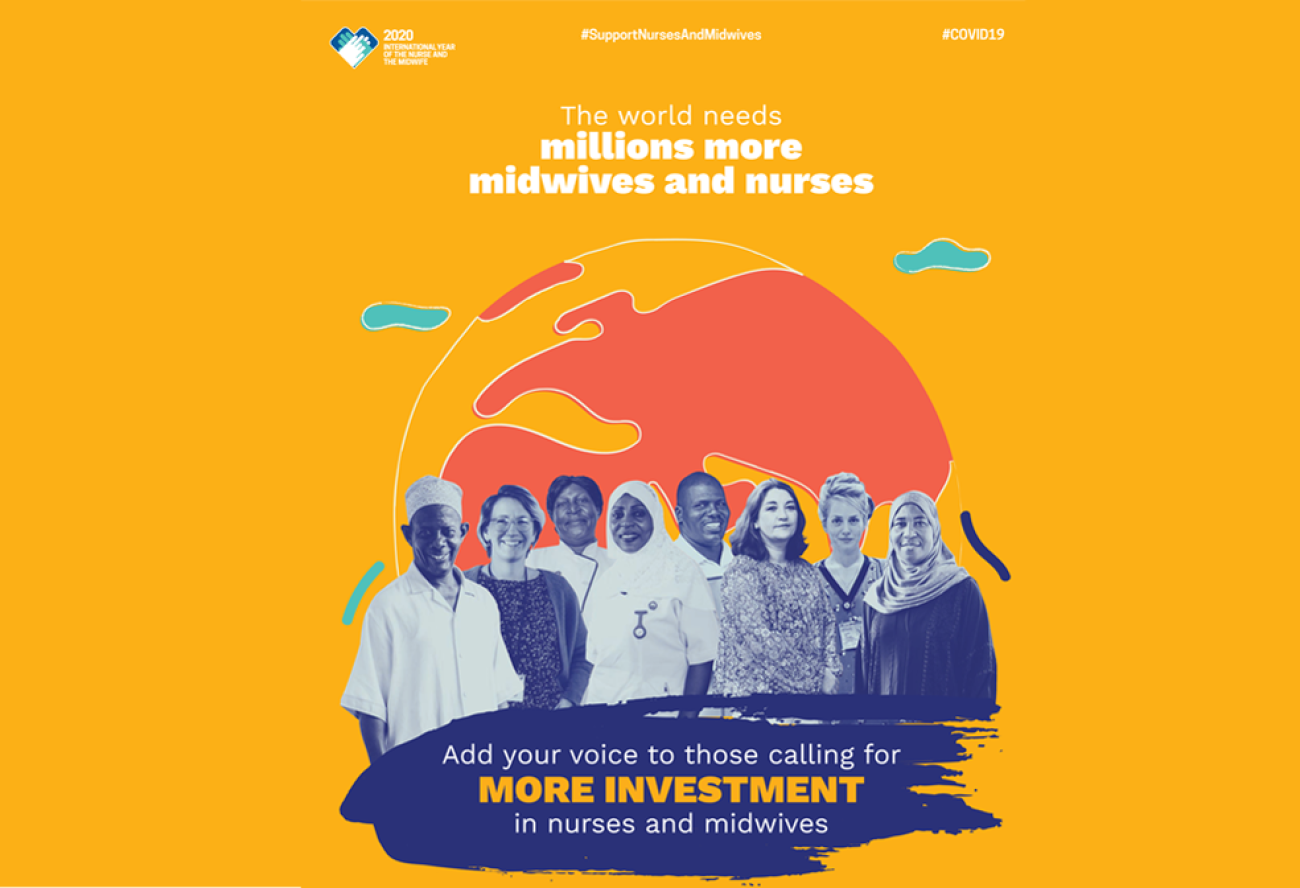Belgrade, 7 April 2020 – The COVID-19 outbreak is affecting society at its very core, taking lives of people, and dramatically disturbing living conditions. So far the pandemic has claimed the lives of 67 840 people, with 1 214 971 confirmed cases in 211 countries, areas and territories.
While it is worth remembering that the recovery rate for individuals affected by the disease is between 95 to 98%, the impact of the crisis on our societies and economies are yet to be fully understood and ascertained.
Its most immediate impact is on people’s life, lifestyle, and on the health systems. While straining all parts of health systems, the pandemic underscores the urgent need to strengthen the global health workforce. The rapidly increasing demand on health facilities and health care workers has already overstretched even the most sophisticated health systems.
On the occasion of the World Health Day 2020, April 7, the United Nations celebrates the work of nurses and midwives and remind world leaders of the critical role they play in keeping the world and its population healthy. Strengthening nursing and midwifery – and ensuring that nurses and midwives are enabled to work to their full potential – is one of the most important things we can do towards achieving universal health coverage and to improve health around the world. Historically and today, nurses are at the forefront of fighting epidemics and pandemics that threaten health. Nurses around the region are responding to the COVID-19 pandemic with courage and commitment: never before has their value been more clearly demonstrated.
„This year, more than ever, we have to appreciate the nurses for their work and to thank them for what they do to keep us healthy“ said Dr. Marijan Ivanusa, the WHO Representative and Head of the Country Office in Serbia. „Together with all frontline health care workers they deserve our deepest thanks and respect and we need to do everything to protect them“.
The potential long-term effects of this pandemic on the economies worldwide and individual countries are devastating. In a global call to respond to the socio-economic impact of the COVID-19 crisis issued last week, the United Nations Secretary-General calls on everyone to act together to address this impact in a large-scale, coordinated and multilateral response amounting to at least 10 percent of global GDP.
The UN Secretary-General has established a dedicated COVID-19 Response and Recovery Fund to support efforts in low- and middle-income countries. Its approach underpins the reformed UN with a coordinated multi-agency, multi-sectoral response for priority national and local actions to address the socio-economic impact of the COVID-19 crisis. The United Nations system—and its global network working for peace, human rights, sustainable development and humanitarian action, will support all governments and partners through the response and recovery.
“COVID-19 is a harsh signal that humanity needs to build a more sustainable future – with better social protection and inclusion, stronger cooperation, and more respect for the environment. The UN Country Team in Serbia is committed to support the country with a safe and effective recovery plan, while ensuring that no one is left behind. Recovering from the COVID crisis will also bring great opportunities to find creative ways to shape a different future, and we all need to participate in this effort” says Françoise Jacob, UN Resident Coordinator in Serbia.
The UN system in Serbia and its partners have activated a chain of support to COVID-19 response, from the onset of the situation. While the initial weeks were dedicated to prevention, mitigation, clinical response, awareness raising, procurement of drugs and equipment, and logistics, the team is now fully committed to address the short and long term socio economic impacts of the pandemic.



















